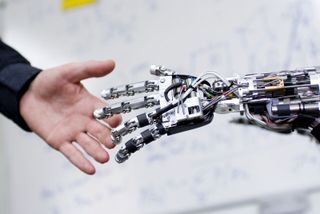US scientists rule out AI as a threat to humanity
Government advisers instead say AI will augment human intelligence

Concerns that AI threatens the future of humanity are unwarranted, according to scientists advising the US Department of Defense (DoD).
JASON, an independent advisory group comprising the scientists, released a report claiming that AI will be more about augmenting human capabilities at the DoD, rather than replacing human jobs.
People's fears focus on artificial general intelligence (AGI), a narrow research area that "seeks to build machines that can successfully perform any task a human might do", according to the report.
The report dismisses the idea this is a realistic risk to humanity however, saying AGI's notoriety is "disproportionate to its size or present level of success" and that "In the midst of an AI revolution, there are no present signs of any corresponding revolution in AGI".
AI is in fact a much broader concept, defined as "intelligence exhibited by machines" by the scientists, whose report is titled Perspectives on Research in Artificial Intelligence and Artificial General Intelligence Relevant to DoD.
While the report says that AI fears are unfounded, they are not uncommon. The idea of AI technology becoming too advanced and forming a humanoid robot uprising has deep roots in sci-fi literature and Hollywood, while more recently, notable figures such as Stephen Hawking and SpaceX boss Elon Musk have also voiced their suspicions of AI technology.
Hawking said: "The development of full artificial intelligence could spell the end of the human race."
Get the ITPro. daily newsletter
Receive our latest news, industry updates, featured resources and more. Sign up today to receive our FREE report on AI cyber crime & security - newly updated for 2024.
One of JASON's major findings, however, was that "the boundary between existing AI and hoped-for AGI keeps being shifted by AI success, and will continue to be." The report adds that AGI is a small part of AI's relevance to future DoD systems.
JASON also found that the use of AI technology to amplify human performance is "a key application area for the DoD," whereas the adoption of AGI technology is not, nor is it any closer to real implementation.




